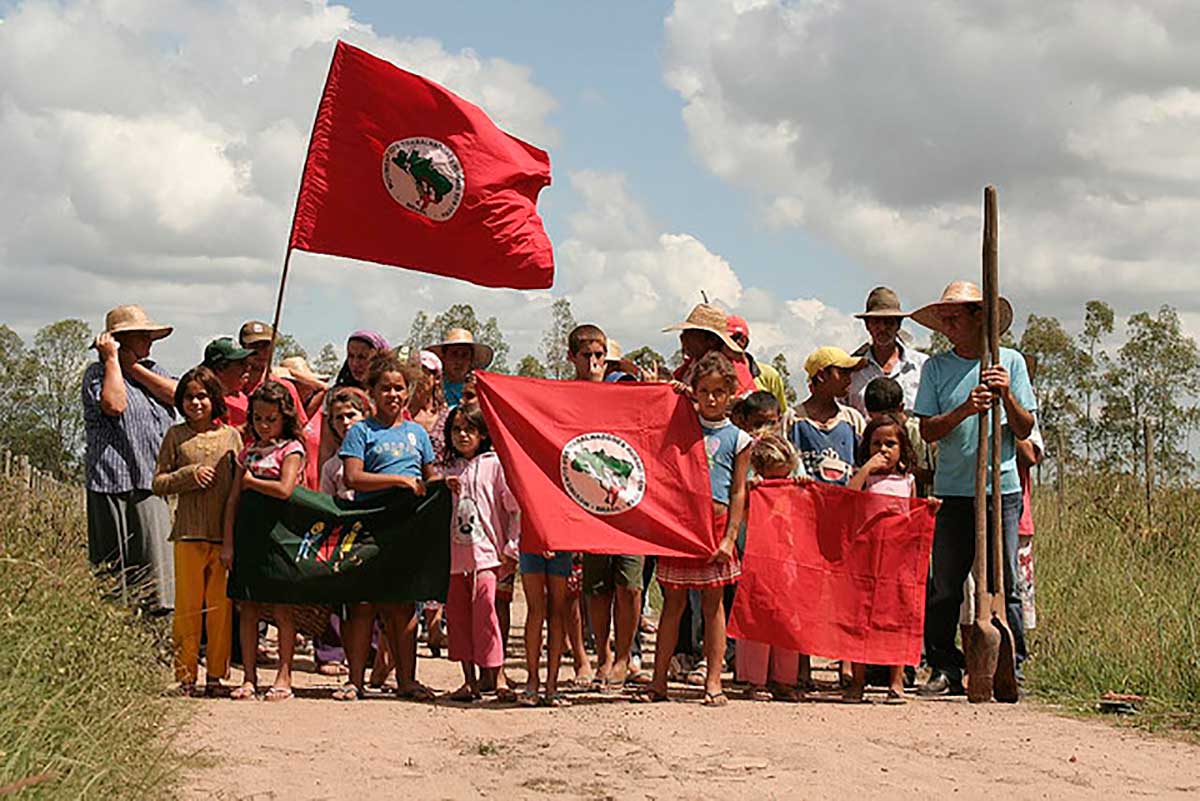Brazil: MST’s João Pedro Stedile, “We have to go back to doing grassroots work”

Info Source: Brasil de Fato | São Paulo | Edition: Pedro Ribeiro Nogueira
“We leave this process with closer ties and organized capacity and strength to resist this professed fascist offensive,” said João Pedro Stedile, from the national coordination of the Landless Workers’ Movement (MST) about the result of Brazil’s 2018 presidential elections.
In an interview to the Brasil de Fato Radio immediately after Jair Bolsonaro’s victory in the runoff election, Stedile pointed out that, despite the defeat, progressive forces won politically, as a strong unity has developed over the past few weeks. In his opinion, Bolsonaro’s government, which will start on Jan. 1, 2019, will be similar to the Pinochet regime in Chile in its fascist nature.
“It’s a government that will continuously use repression, threats, intimidation. It will unleash the reactionary forces that exist in society. On the other hand, they will try to give complete freedom to capital in a neoliberal program. However, that formula is not viable, it does not provide social cohesion, and it does not solve the population’s basic problems,” Stedile said.
Brasil de Fato: What can you say to the more than 46 million people who voted for candidate Fernando Haddad, who was endorsed by the MST?
We are still in the heat of the moment [after the results came out] and, first and foremost, we have to keep calm and understand the context of class struggle, and not feel defeated by this result. The ballots may have legitimized Bolsonaro, but that does not mean he had the support of the majority of the people. There is a high level of absenteeism, 31 million [voters]. Haddad had 45 million [votes]. That’s 76 million Brazilians who did not vote for Bolsonaro.
Therefore, the Brazilian society is divided. Even the results of the election, from what I could see from previous opinion polls, it was clear that those supporting Haddad’s platform are the ones who earn less, between two and five minimum wages, those with low level of education. And clearly the richer and wealthier voted for Bolsonaro.
But there is also a clear difference between regions in the elections. When we look at Brazil’s map of elected governors, 12 progressive candidates who won [out of 27 states] support people’s organizations, from Pará state [in the North] to governor Renato Casagrande in Espírito Santo [in the Southeast]. The Northeast and all that area in the Amazon are a hub of resistance in terms of regions, which clearly shows the people there do not want to follow the paths of Bolsonaro’s fascist project.
Finally, as a brief analysis, everyone is talking about it, aside from the election results, last week consolidated a political victory for the left and people’s movements. We had numerous demonstrations of all organized forces. Unions, intellectuals, students, universities.
Never in Brazil’s history have there been more than 500,000 women all over the country, in 360 cities, taking to the streets to say “Not Him,” “No to Fascism,” so I believe the analysis is that it is not a political defeat. We suffered an electoral defeat, but we leave this process with closer ties and organized capacity and strength to resist this professed fascist offensive.
Despite Bolsonaro’s braggers, we know the institutions have limits. He has said that he plans to designate the MST and the MTST [Homeless Workers’ Movement] as terrorist organizations. Do you see this as a real possibility?
I think Bolsonaro’s government will be similiar, if we draw a parallel, to the Pinochet regime in Chile. Not in the way he came into power, but for its fascist nature. It’s a government that will continuously use repression, threats, intimidation. It will unleash the reactionary forces that exist in society. On the other hand, they will try to give complete freedom to capital in a neoliberal program. However, that formula is not viable, it does not provide social cohesion, and it does not solve the population’s basic problems.
Brazil is going through a serious economic crisis, which is the root of all this process. Since 2012, the country has not grown. And as it does not grow, as it does not produce new wealth, social, economic, and environment problems increase.
With his ultra neoliberal program, where he only stands for the interests of capital, he may help banks, make banks continue to profit, help transnational corporations to hijack what is left of what we have here, but, as they will not solve people’s real problems in terms of employment, income, labor right, pension, land, housing, that will intensify contradictions.
That will lead to social chaos that will allow people’s movements to go back to the offensive line, with mass mobilizations. And, deep down, in addition to what is in the Constitution – which he will not respect very much –, what will protect us is, not running to hide. What will protect us is the ability to bring the people together, keep fighting with the masses in defense of rights, of improving living conditions. And people’s mobilizations will protect our activists and leaders. Let us not be scared. The contradictions they will have will be much bigger than the possibility of repressing with impunity.
